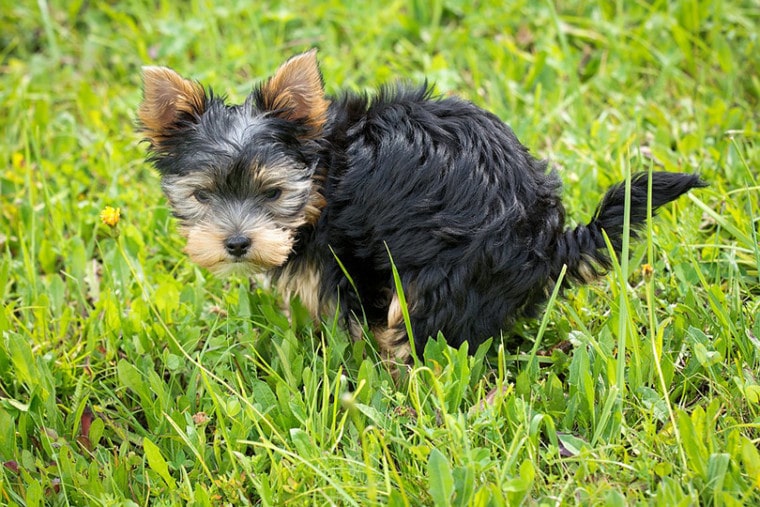
Being a super sleuth with your dog’s poop probably isn’t your favorite thing to do. Dog poop stinks, it’s sticky, and it’s unpleasant to examine. But as a good dog owner, you should regularly examine your dog’s feces to see if something unusual shows up.
The appearance, consistency, and smell of your dog’s poop can be a good indicator of your pet’s overall health. If you’re wondering why your dog’s poop is black, we’re here to help! There are several causes of black poop in dogs, and we’ll cover them all here.
The 5 Possible Reasons Your Dog’s Poop Is Black & Ways to Help
1. An Injury to the Digestive System
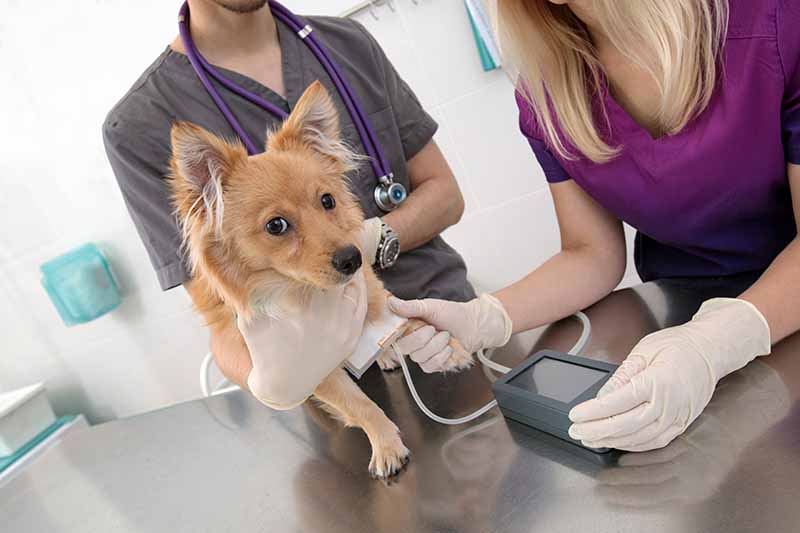
| Common Cause(s) | Ingestion of something sharp |
| Seriousness | Moderate to high |
A common cause of black dog poop is some type of injury to the digestive system. Maybe your dog has a GI tract injury from eating something sharp like a twig, part of a dog toy, or another random item. In this case, the sharp item may have punctured or scraped the GI tract or intestinal wall. This can cause bleeding that shows up as dark stool.
If you suspect your dog has ingested something sharp that’s causing his poop to be dark, contact your vet for advice. Your vet may tell you to keep an eye on your dog for other symptoms or they may tell you to bring your dog in for an exam. The last thing you should do is ignore the dark poop for several days. It’s better to be safe than sorry, so give your vet a call.
2. Infectious Agents
| Common Cause(s) | Intestinal parasites, bacterial, viral, or fungal infections |
| Seriousness | Moderate to high |
Several infectious agents can lead to black dog poop caused by internal bleeding. An infectious agent like an internal parasite or a bacterial, viral, or fungal infection could cause internal bleeding of the stomach or small intestines. In this case, the poop will likely be dark and very smelly.
If you suspect your dog has an internal parasite or an infection, contact your vet so some tests can be run. You can expect your vet to do a stool analysis, and possibly additional testing, to see what may be the cause of the dark stools.
3. Hemorrhagic Gastroenteritis (HGE)
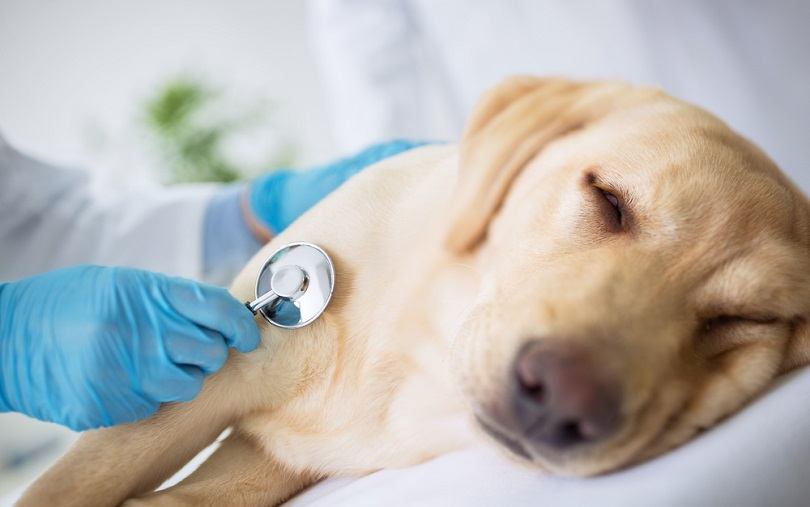
| Common Cause(s) | Unknown |
| Seriousness | High |
Hemorrhagic gastroenteritis or HGE is a canine disease of unknown origin. It is often a cause of black poop that’s often runny. HGE is an acute disorder where large amounts of fluid seep into the gut. It typically affects young to middle-aged, small breed dogs, and it often comes on rapidly. In addition to black, loose poop, dogs with HGE often vomit and rapidly lose bodily fluids.
If you have a young, small breed dog that suddenly has black runny poop along with vomiting, HGE may be the cause. You should get your dog to the vet right away to avoid dehydration and even death. This condition is very serious.
Your vet will conduct a blood test to determine if your dog has this condition. If so, treatment will begin and usually requires hospitalization. The most common treatment is IV fluid therapy to replace lost fluid volume, supportive care, and rest.
4. Gastroduodenal Ulcer Disease
| Common Cause(s) | Accidental poisoning |
| Seriousness | Moderate to High |
Gastroduodenal ulcer disease consists of ulcers that develop in a dog’s stomach or the first section of the small intestine called the duodenum. One of the leading causes of this disease is accidental ingestion of something poisonous. Some common culprits are poisonous mushrooms, pesticides, rodenticides, and chemicals including ethylene glycol.
Along with black poop, a dog with a gastroduodenal ulcer can also suffer from:
If you suspect your dog has gastroduodenal ulcer disease, you need to get him to the vet as soon as possible for an evaluation. You can expect your vet to conduct a physical examination and run some routine lab work. They may also want to analyze your dog’s stool to determine if blood is present or not.
5. Cancer
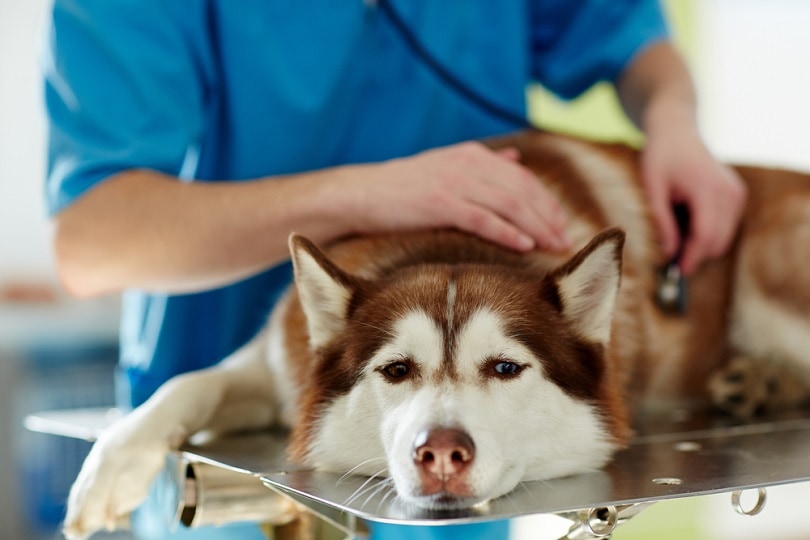
| Common Cause(s) | Exposure to carcinogens |
| Seriousness | High |
Cancer in dogs can cause black poop as well as many other symptoms including vomiting, lethargy, loss of appetite, and weight loss. Cancer can be caused by many things like exposure to known carcinogens. This may include smoke, pesticides, UV light, and asbestos.
It’s important to see a veterinarian if your dog’s poop is consistently black and other symptoms are present, like tiredness or a lack of appetite. They will likely run a host of tests to determine if your dog is suffering from some type of cancer. Some types of cancer can progress rapidly, so contact your vet if cancer is suspected.
Other Causes of Black Poop
On top of these leading causes of black poop, dark stools can also be caused by other things. Your dog’s poop may be dark if he’s ingested blood due to something as common as a nosebleed. His poop could also be black as a result of a medication he’s taking. Just remember that black poop isn’t normal, so it’s best to get it addressed right away.
What Normal Dog Poop Looks Like
When it comes to your dog’s health, often the proof is in the poop. You may be familiar with a sudden change in the consistency of your dog’s poop, like a bout of diarrhea. But you may not know what it means when it is suddenly another color, size, shape, or consistency.
Because decoding your dog’s poop can be confusing, it helps to know what normal dog poop is. Generally speaking, if your dog’s poop is firm, log-shaped, easy to scoop, and a chocolate-brown color, it’s likely all is well with their general health. However, what is normal for one dog may not be normal for another. This is why you should pay attention to your dog’s poop so you know what’s normal for him.
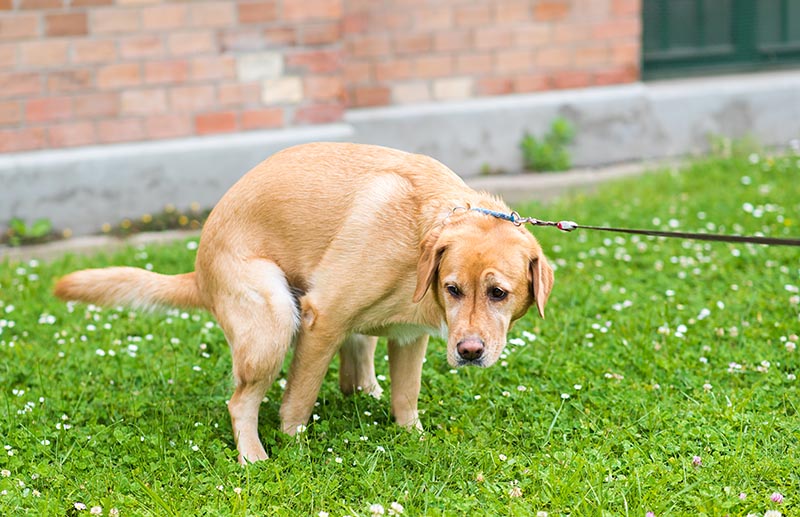
Conclusion
Black dog poop can be caused by many things, from internal injuries to canine cancer. While it’s not pleasant to examine your dog’s poop, it’s something you should do every day to keep an eye out for any changes. Become familiar with what your dog’s poop normally looks like. This way, you’ll be quick to notice anything out of the ordinary. If you do notice something askew, contact your vet for an evaluation to rule out anything serious.
You may also be interested in:
- Why Does My Dog Poop on Concrete? (8 Potential Causes)
- Why Does My Dog Walk and Poop? 11 Possible Reasons
- Why Does My Dog’s Poop Smell So Bad? (6 Possible Reasons)
Featured Image Credit: Pezibear, Pixabay









